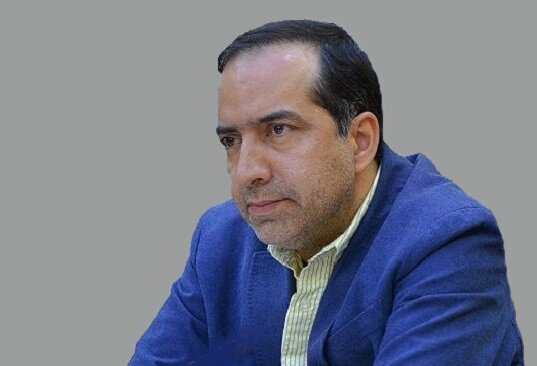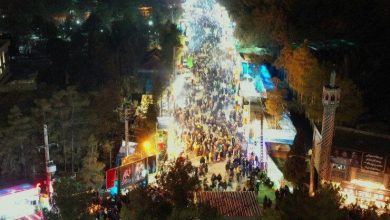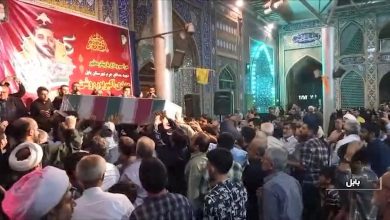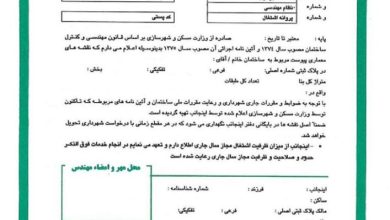
Although no work of Hans Werner Richter (1908-1993) has been translated into Persian, but with a simple research, we can see that he is a great writer. He is the founder of Literary Group 47, which was founded in Germany in 1947, two years after the end of World War II. In the importance of this grouping, it is enough that great writers such as Gunthergrass and Heinrich Boll have come out of this group. German writers of this period share two characteristics: anti-war leanings and a hatred of Nazism and similar elements.
In her wonderful book Totalitarianism, Hannah Arendt lists the difference between this term and similar words such as tyranny, dictatorship, and tyranny. In his opinion, only two regimes are examples of totalitarianism: Nazi Germany and the Stalinist Soviet Union. Although totalitarians are dictatorial and authoritarian, they are capable of mobilizing the masses and have many devotees in the body of society and even the elites. They use a mixture of intimidation, propaganda and purges. According to Arendt, even Mussolini’s Italy is not an example of totalitarianism, because totalitarian movements cannot take place in sparsely populated countries because they depend on the numerical plurality of their members. Totalizer has other features. They are extraordinary people who, despite all the mass murder and inhumanity they committed, are considered a turning point in the history of their country. They are looking for Chiregitam. The history of the country is divided into before and after their appearance, and serious leaps occur during their rule. Hitler brought the injured and humiliated people of Germany after World War I into a united country with thriving production and a claim to be master of the world. Stalin also turned the backward and feudal country into an industrial one and was the main factor in establishing Hitler’s war machine, without which the Allies could not even imagine winning the war.
This wonderful and small story consists of two episodes. The name of the main character in both stories is Willy, and ironically they are related to each other. Willy the barber (character in the first story) is the son-in-law of Willy the butler (character in the second story). The episodic structure, of course, leaves the author’s hand free for all Willy and other characters to have a tenuous presence in Willy’s other story.
The story takes place in a village. Both episodes depict the atmosphere of the years of Hitler’s overthrow. It refers to the turmoil of the Weimar government (after World War I) and how the Brown Shirts made the air of the country’s uniform by appealing to the young, the naive and even the elite, by intensifying resentment towards the Treaty of Versailles and later by focusing on the Jews.
Hairdresser Willie like most people does not have a clear stance. But in an involuntary process, they are included in the Ansar Peshwa jirga. Hitler’s painting is installed in his bedroom and becomes a place of visit. The fame of this Hitler fanatic and his legendary paintings spread throughout the country. In the confrontation between the local party boss and his family, Willy doesn’t even know if he’s a Hitler supporter or not?! Fearing to fall behind the dominant wave and wanting to get along with the worshipers, he feels a double feeling, and while showing himself as a supporter of the ruling regime, he says to himself: “A person can be against it, but in secret. He can mock them, but within his four walls. At night, under the blanket, where every forbidden word is buried, but outside, in public, it should be the same color as the worshipers. There was no other choice.”
In the last months of the war, when the page was turned and the initial resounding victories gave way to the retreat of the Wehrmacht, the Red Army entered the village and searched for the legendary painting. unaware…
The second story follows but the other side of the coin. He is a teacher in the village before the war, who was expelled and stayed home due to his reading of banned books and anti-war attitudes, which remind him of his presence on the Western Front in the previous war. He, who had previously advocated Chancellor Hitler’s next step in promoting war, believed based on his lived experience that the war machine was built by people who had no part in it. Naturally, the Nazi Party recognized him as undesirable and narrowed the field for him. In the second arrest, when he is threatened with severe punishment, his wife is forced to sacrifice herself in order to set him free. Willie, too, is a prisoner of his own considerations and cannot appear as the hero: “He lied.” He had to lie to be saved, but that’s all the look of the story. He was forced to do so through threats and intimidation. With the arrival of the Russians in the village, the page turns and the rulers of yesterday return after his approval.
My two personal jobs (Salmani and Al Muallem) were chosen smartly. The first is a business that is considered a mirror of society because it is exposed to the latest news and rumors, and the barbershop has an informational function. Some of his customers, in imitation of their legendary leader, sport a mustache and a symbolic setting is created. The teacher, because he is the educator of the next generation, is instrumental in drawing Nazi sensitivity and shaping the future. By choosing the same name for his character, the author wants to show that in those conditions people change, go with the flood and do not play a role in conscious choice.
This readable, straightforward story with bitter humor depicts the circumstances that shape the course of human actions, but Werner mostly satirizes the game of fate. He wants to say, “No one wins.” “Everyone adjusts to the situation.”
We should be grateful to Burj Publishing House for introducing this author to Persian readers. It should be noted that one of the common practices in this publication is the purchase of rights.










